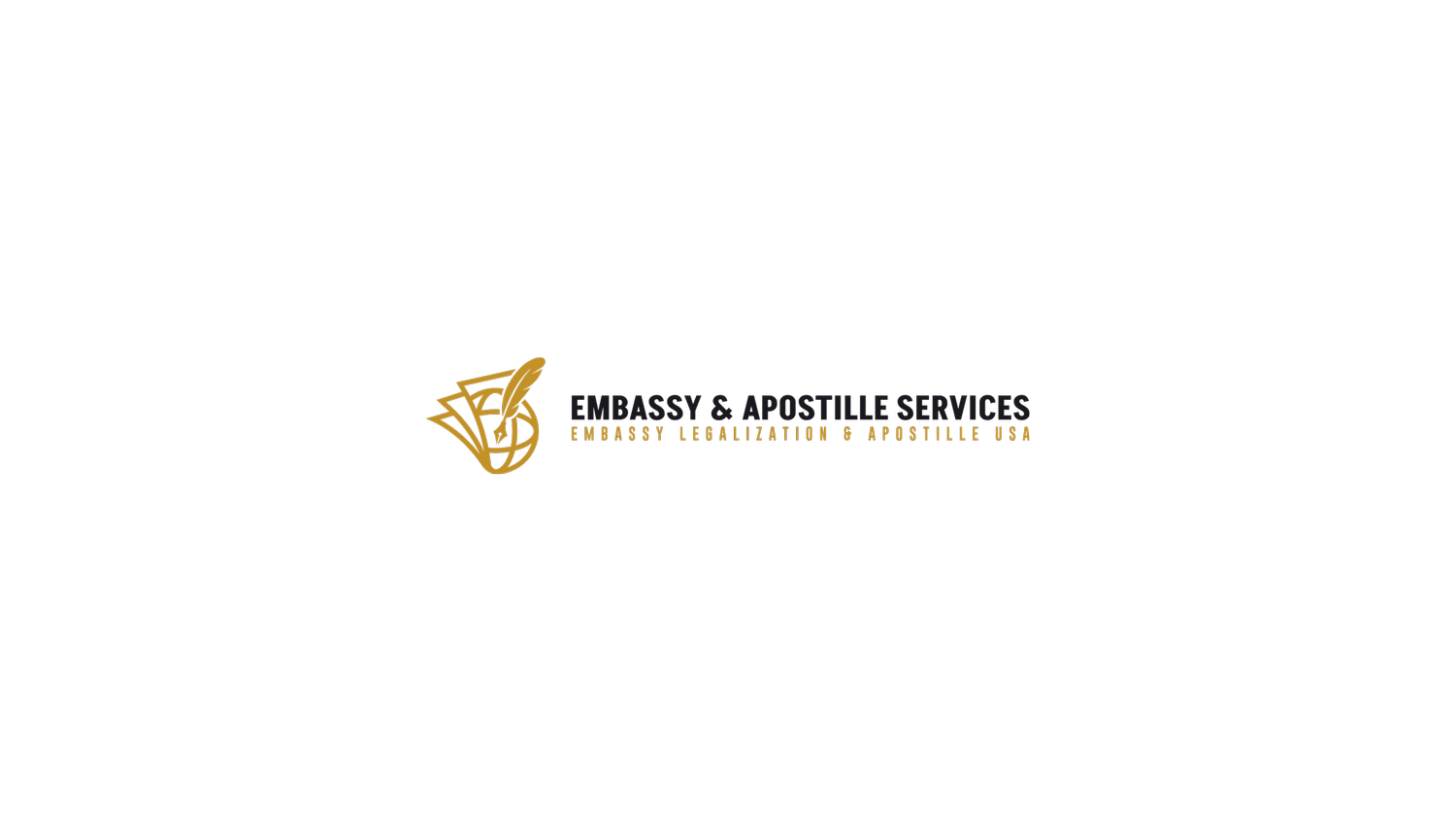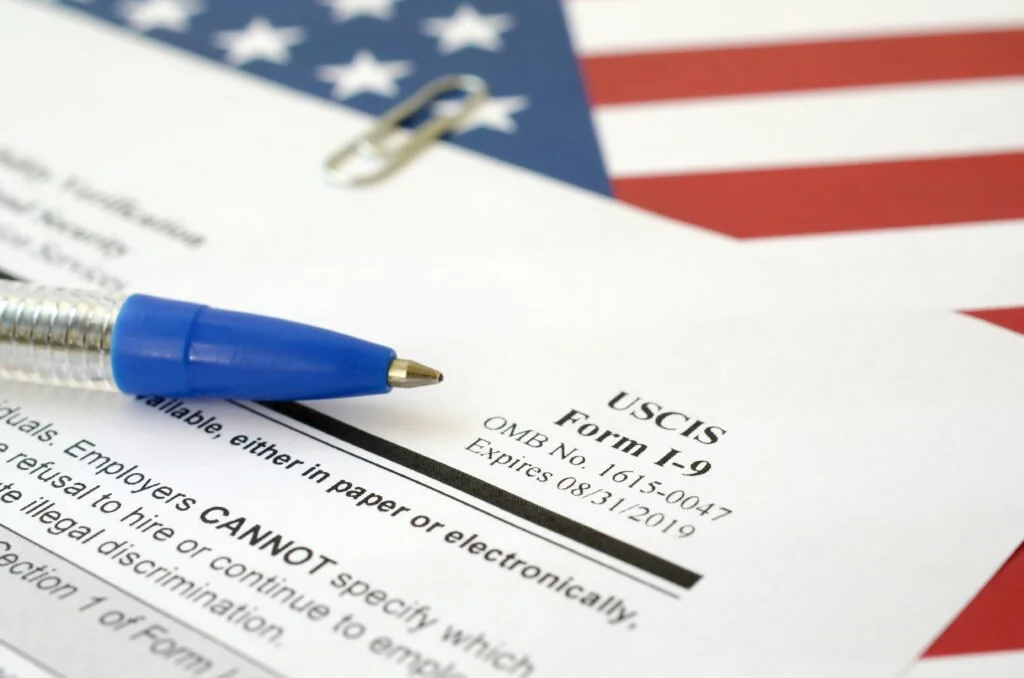Guide to I-9 Verification: Notary for I-9 in DC, MD & VA
Understanding the I-9 process is essential for employers. This guide provides employers in Washington DC, Maryland, and Virginia with the latest I-9 verification updates, best practices, and compliance tips for 2024.
What is Form I-9?
Form I-9, known as the Employment Eligibility Verification, is a critical document provided by the U.S. Citizenship and Immigration Services (USCIS) that employers must use to confirm the identity and employment authorization of individuals they hire. All U.S. employers must properly complete Form I-9 for each employee—whether they are citizens or noncitizens—at the time of hiring.
Why Is I-9 Verification Important?
I-9 verification is not just a legal obligation; it’s vital for ensuring a fair, lawful hiring process. Failure to accurately verify an employee’s eligibility can lead to severe consequences, including costly fines and legal actions, which makes this process a crucial component of your hiring strategy.
Key Components of the I-9 Verification Process
Section 1: Employee Information and Attestation
The employee is responsible for completing Section 1 of Form I-9, which should be done by the first day of employment. This section gathers personal information, including the employee’s name, address, date of birth, and Social Security number. The employee must also attest to their eligibility for employment.
Section 2: Employer Review and Verification
In Section 2, employers must review the documents submitted by the employee to establish their identity and authorization to work. This must be completed within three business days of the employee's start date. Employers must record document details, such as title, issuing authority, document number, and expiration date.
Section 3: Reverification and Rehires
Section 3 is used to update or reverify an employee’s work authorization. This section is necessary when an employee’s previous authorization expires, or when they are rehired within three years of their initial Form I-9 completion.
I-9 Verification Compliance Updates for 2024
Remote Verification
In light of the COVID-19 pandemic, temporary provisions were established to allow for remote I-9 verification. As of 2024, these provisions remain in effect, though employers must be ready to revert to in-person verification as needed. Employers using remote methods must follow all guidelines and ensure physical inspections when required.
Enhanced Electronic Verification
Employers are encouraged to adopt electronic I-9 verification systems, which streamline the process and reduce the risk of errors. These systems must meet USCIS standards for secure storage and easy retrieval.
Best Practices for I-9 Compliance
Conduct Regular Audits
Regular internal audits can help identify and resolve discrepancies before an official inspection. Ensure all I-9 forms are accurate, complete, and securely stored.Train HR Staff Thoroughly
HR personnel must be well-trained on the I-9 process. Proper training ensures that forms are filled out correctly and helps prevent legal issues associated with non-compliance.Use E-Verify
E-Verify is a voluntary, online system that allows employers to verify employees' work eligibility electronically. While not required for all employers, it offers an additional layer of security in confirming compliance.Stay Informed About Changes
Immigration laws and regulations evolve. Stay up to date on any changes to I-9 requirements and related immigration laws by subscribing to updates from USCIS or participating in training sessions.Secure Storage and Retention
Store both physical and electronic I-9 forms in secure locations. Ensure that I-9 forms are separate from employee personnel files and only accessible to authorized personnel. Forms must be kept for three years after the hire date, or one year after employment ends, whichever is later.
Considerations for Employers in DC, MD, and VA
Washington DC
Employers in Washington DC should be aware of both federal and local employment regulations, including those related to wage theft prevention and worker rights. Keep updated on local laws by consulting the DC Department of Employment Services.
Maryland
In Maryland, the Maryland Fair Employment Practices Act affects I-9 verification and hiring practices. Employers should also stay informed about state-specific immigration laws that might influence the verification process.
Virginia
Virginia employers must comply with the Virginia Values Act, which protects against discrimination in hiring practices. Employers in Virginia should be diligent about conducting the I-9 process fairly and without bias, ensuring compliance with local and state regulations.
Common I-9 Pitfalls and How to Avoid Them
Missing Deadlines
A frequent mistake is missing the three-day deadline to complete Section 2. Set reminders for new hires and ensure timely document submission.
Incomplete Forms
Ensure that all sections of the I-9 are completed correctly. Check for missing information and document any necessary corrections.
Incorrect Document Handling
Only accept original, unexpired documents. HR staff should be trained to recognize acceptable documentation and understand proper handling procedures, especially for remote verifications.
Helpful Resources for Employers
USCIS Website: The USCIS website offers detailed instructions and FAQs on completing Form I-9.
E-Verify: Visit the E-Verify website for more information on electronic employment verification.
Conclusion
I-9 verification is a vital component of the hiring process for employers across the U.S., including those in Washington DC, Maryland, and Virginia. By staying informed about the latest updates, conducting regular audits, and implementing best practices, employers can ensure compliance and avoid potential penalties. Adopting tools like E-Verify and providing proper training for HR staff are excellent ways to streamline your verification process and maintain lawful employment practices.

